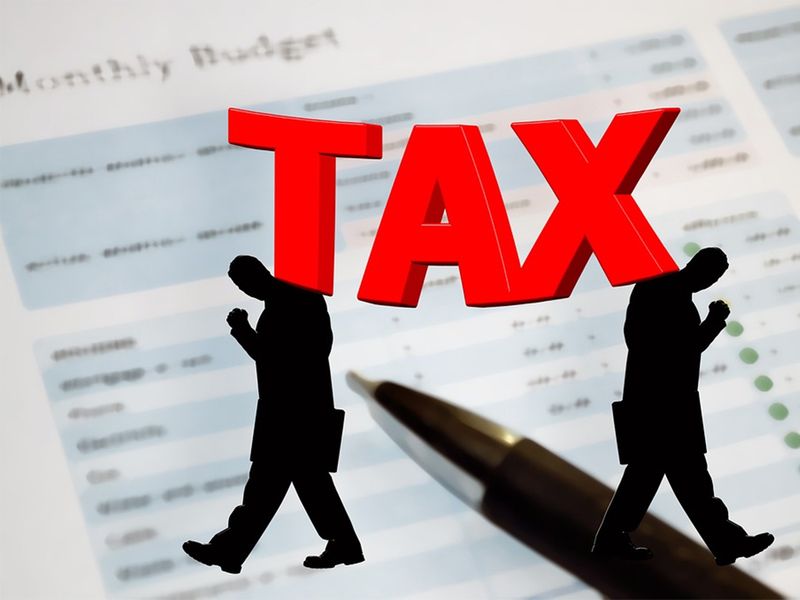
Dubai: After guidelines concerning the 'tax residency' status of residents in the UAE were set by the Ministry of Finance on Wednesday, there were increasing number of doubts on what it means to be a ‘tax resident’ when one does not pay taxes on their individual income when residing here.
Right of the bat, what a UAE resident needs to know is that where you are a ‘tax resident’ is often where you are liable to pay income tax. But what is often overlooked is that this is the case even if you are not required to pay any income tax and have no income that is subject to income tax.
But in order to understand this better and delve deeper into the clarification issued, it is vital to revisit what the term 'tax residency' means to an everyday reader and how does this differ from obtaining tax residency through investment in real estate or through any other means.
It essentially determines how you are treated with regard to taxation in a particular country. The criteria for ‘residence for tax purposes’ or ‘tax residency’ vary considerably from jurisdiction to jurisdiction.
What legally makes you a tax resident?
Often, a major determinant of an individual's status as a resident for tax purposes is whether he or she maintains an abode in the country and is “present" for 183 days or more (one-half of the tax year) – a thumb rule followed by almost every major country.
For the vast majority of the global population, their tax residency is identical to their home country. The country in which they were born, where they live, and where they work. And as long as the last two factors do not change, the tax residence will not change.

In the UAE, individuals will be a tax resident if their usual or primary place of residence is in the Emirates, and also the centre of their financial and personal interests, or if they have been physically present in the UAE for a period of 183 days or more in a consecutive 12-month period.
As per previously stated norms, you will also be a tax resident if they have been physically present in the UAE for a period of 90 days or more, and you are a UAE citizen, expatriate resident or GCC national either holding a permanent place of residence or carrying out business in the UAE.
For example, an Indian expat living in Australia, is a citizen of India but a tax resident of Australia – as long as he lives and works there. It is also possible to be resident for tax purposes in more than one country at the same time. This is known as dual residence.
Now what was clarified by the UAE MoF?
The Ministry of Finance issued guidelines on how long a resident needs to be physically present in the UAE in order to maintain such a status, and how the individual also doesn’t need to own a ‘permanent residence’, but such a place be made available to them for tax and legal reasons.
“I think this is a much needed update for lot of people who are resident in UAE but have to travel for businesses, sometimes for a month,” said Dixit Jain, who is the managing director at The Tax Experts DMCC, a Dubai-based tax advisory firm.
Jain further explained that with this recent clarification, what was made clear was the fact that regardless of whether you stay in the UAE for a full-day or part of the day, for taxation purposes, it will be counted as you being in the country.
“Knowing this will help these people to manage their stay within the required legal framework and hence they will be able to maintain their tax residency status. I really feel government has addressed this in a timely manner and more so positively for residents of the country,” he added.

Why is the above clarification relevant to me?
The clarification followed a resolution passed in September last year, which outlined the rules to determine when a person may be considered a tax resident of the UAE, and formalities for the issuance of Tax Residency Certificates (TRCs). This regulation came into effect on Wednesday.
The TRC is a certificate issued for eligible government entities, companies and individuals to take advantage of agreements of double taxation avoidance (DTAA) on income earned in a country that isn’t your permanent residence, to which the UAE is a signatory.
(The Double Taxation Avoidance Agreement or DTAA is a tax treaty signed between any two or more countries, so that taxpayers can avoid paying double taxes on their income earned from the source country as well as the residence country.)
People assessing their tax residency can apply to the tax authority for a TRC. Such a certificate is often a formal requirement for UAE residents wishing to claim tax relief or other benefits in another country under the tax treaty (DTAA).
Regulations also note that any tax treaty like the DTAA will continue to apply when determining tax residency, meaning tax residence of UAE residents will be determined according to how the tax treaty works in their respective country, which in most cases implies that you are not taxed twice.
How tax residency affects if I’m a business owner?
What a business owner needs to know is, under the resolution that was approved late last year, a business should be considered as a ‘tax resident’ in the UAE, if the entity is established, formed or recognised in the UAE, excluding a UAE branch registered by a foreign entity.
Also, further clarification indicated that a company established outside the UAE may still be treated as a ‘tax resident’ if it is effectively managed and controlled in the Emirates. This can also include furnishing audited accounts and a minimum of one year of establishment.
So if your business venture operates under the above criteria, your entity can be deemed a ‘tax resident’ in the UAE, and the relevant certificate can be applied for as this will help prevent double taxation.

Key takeaways
While a second residence or residence permit gives you the right to physically live in a country, a ‘tax residence’ is any place where you are required to pay taxes, and while the two statuses can be related, they are separate by definition for legal and taxation purposes.
By default, it doesn’t mean that by having a residence permit in a country, you are a ‘tax resident’ there as well. Additionally, it doesn’t matter if your second residence is temporary or permanent as in some countries, you can even be a citizen without being a tax resident.
However, this was blanket rule that was in place until now. What has changed in recent years in the UAE with tax resident statuses is that categorical tests of residence have been laid down which will deem you as a ‘tax resident’ if any of various conditions are met.
Until now, a crucial number that was used to determine your ‘tax residency’ status was ‘183 days’, meaning if you spend any amount of time less than that in the country, you wouldn’t be taxed there. Now, it needs to be known where you have the closest connection to.
This means not only spending time but also establishing other connections in that country like work, business etc. This is why it was stated in the latest guideline that a person’s place of residence is also where his or her “work, personal, economic relationships or other connections are the strongest”.













